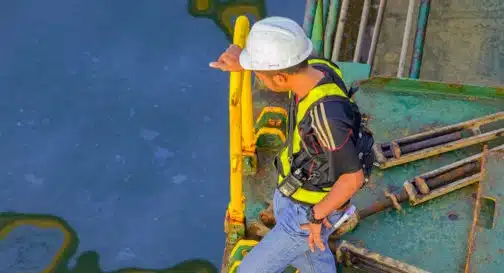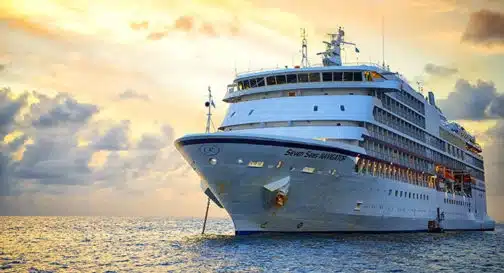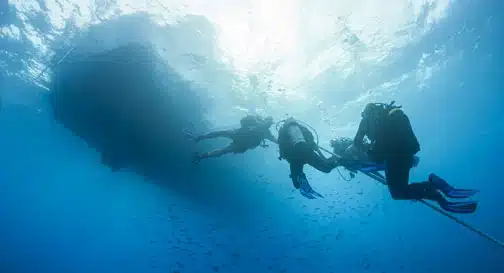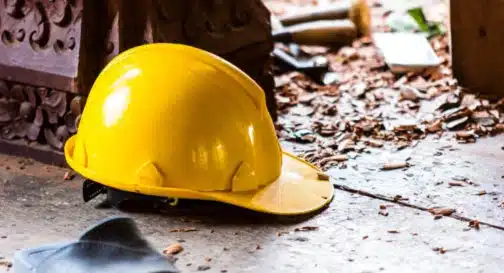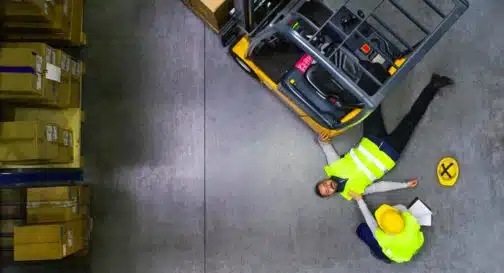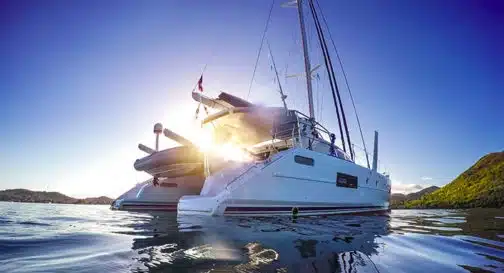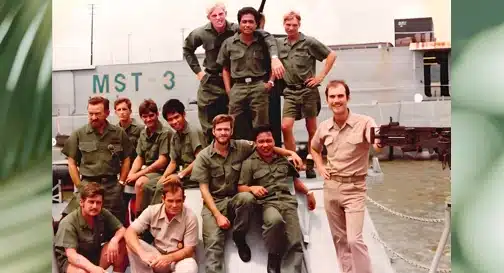Dockyard Worker Accident Lawyer
Ship and Dock Worker Injury Attorney Preston Easley Helps Longshoreman Injured While on a Ship or Boat Collect Maximum Compensation for Their Injuries in CA and HI
Visit any major port in Hawaii or California, and you’ll see longshoremen lifting and manipulating multi-ton shipping containers with the aid of massive forklifts and cranes. Much of the grunt work of modern marine commerce involves packing, loading, unloading, and unpacking these 20- to 40-foot-long containers, hundreds of which can be stacked on large barges and other marine vessels. Although the containers themselves are fairly standardized, their contents are not, ranging from clothing to machine parts to toxic chemicals, which pose an added risk to unwary workers. If you were injured while working at a port, contact a dockyard worker accident lawyer for legal help.
Even on dry land, the operation of cranes and forklifts entails significant risks. These devices have numerous moving parts, and they’re extremely heavy, in order to counterbalance the multi-ton loads they’re designed to manipulate. If the operator of a crane or forklift is insufficiently trained, or if he’s using the wrong piece of machinery for the job, he can easily lose control of the load he’s attempting to move and may even cause the entire vehicle to tip over. By the same token, an improperly maintained crane or forklift can be involved in a serious or even deadly accident through no fault of its operator or crew. Not only is the crane or forklift crew at risk, but anyone else working (or even walking) in the immediate vicinity.
To learn more about your rights and options for filing personal injury claims, it is advisable to work with an experienced Hawaii or California maritime lawyer. Injured victims or their families are encouraged to contact our law firm to discuss their claims in a free consultation with our legal team.
What Are Common Types of PACECO Equipment?
All sorts of cranes and forklifts are used in shipping ports, but some types are so common that they’re practically a part of the average longshoreman’s vocabulary. The Transtainer crane, manufactured by PACECO, is a massive, four-legged piece of machinery that stacks shipping containers for storage and loads them onto trucks. Another piece of PACECO equipment, the Top Handler, is a truck-mounted crane capable of lifting multi-ton shipping containers, albeit one at a time. “Hammerheads” are especially difficult to operate; these giant cranes are cantilevered and have a wide operation perimeter. Finally, a Zodiac crane attaches to the end of a large boat and is used to lift slightly less massive loads. Longshoreman Accidents Under the Longshore and Harbor Worker’s Compensation Act
Longshoremen who are injured while operating forklifts and cranes have recourse to file for damages under the Longshore and Harbor Worker’s Compensation Act (LHWCA), which entitles stevedores and dockworkers to the same legal protections as their colleagues on dry land. The LHWCA requires a longshoreman’s employer to pay two-thirds of his wages while he recuperates from an accident (whether or not that accident was caused by an identifiable party), and also allows an injured dockworker (or the relatives of a deceased dockworker) to collect damages for gross negligence or recklessness.
What is the Harbor Workers Compensation Act?
The Longshore and Harbor Workers Compensation Act (LHWCA) is a federal law that allows injured dock workers to recover compensation for medical bills and 2/3 of their average weekly lost earnings during periods of disability where they are unable to return to work. The Harbor Workers Compensation Act applies to stevedores, longshore checkers, terminal workers, shipbuilders, crane operators, marine construction workers, vessel repair workers, and others employed at shipyards or other waterfront occupations. The Act may also apply to gas or oil rig employees in certain cases.
The benefits provided by the Act are payable without regard to proving negligence by the employers. However, in many personal injury cases, the compensation recoverable from a Harbor Workers Compensation Act claim is considerably less than the damages that could be recovered in negligence cases. While the Act prohibits an injured maritime worker from suing their employers, it does allow the injured worker to sue a third party for damages under maritime law or state law negligence proceedings.
Are Dock Injured Dock Workers Considered Injured Seamen Under the Jones Act?
In most cases, dock workers and longshoremen do not qualify as seamen under maritime law and, therefore, cannot receive the benefits or protections provided by the Jones Act.
Maritime injury lawyers, such as attorney Preston Easley, are well-versed in the laws pertaining to maritime workers who have suffered unfortunate injuries. Your injury attorneys will review your case and help determine what laws apply and who may be held liable for damages incurred due to the accident. Contact our law office to schedule a free, no-obligation case evaluation with the attorney and his legal team today.
What Are Common Causes of Dockyard and Harbor Accidents in Hawaii and California?
Shipyard and dock workers have very dangerous jobs. Whether you’re working on military bases, working for cruise lines, or employed for cargo shipping companies, the handling of heavy equipment and unloading cargo that can sometimes contain hazardous chemicals can be daunting. Add to that the fact that dockworkers and shipyard employees must also work in the elements on the seashore, and you have no shortage of possibilities for accidents to happen.
Accidents that can cause serious injuries in cargo shipping, unloading for commercial fishing, ship repairs or building, and other shipyard jobs include the following:
- Accidents caused by faulty machinery
- Crane accidents
- Crushing accidents
- Dry dock accidents
- Explosions
- Falling objects
- Forklift accidents
- Hypothermia and drowning
- Improperly installed electrical wiring
- Ladder and scaffolding accidents
- Long-term exposure to hazardous chemicals, including welding fumes, asbestos, solvents, and cleaners
- Loose or decaying wood on the docks
- Poorly maintained equipment, safety gear, or watercraft
- Repetitive strain injuries
- Slip and fall accidents on slippery, uneven, or dangerous surfaces, which can sometimes lead to workers falling into the water
- Vehicle accidents
What Are the Most Common Injuries Dock Workers Suffer in Maritime Accidents?
With so many possibilities for things to go wrong, dock workers and other maritime workers must always be careful. Any small mistake can result in severe injuries to themselves or others. However, sometimes, even when everyone does exactly as they should, machinery or equipment lets us down, and accidents happen regardless, sometimes resulting in catastrophic injuries.
Common injuries suffered by maritime workers on the docks, shipyards, and harbors include the following:
- Amputations
- Broken bones
- Burns
- Concussions, traumatic brain damage, and other types of head injury
- Crushing injuries and degloving injuries
- Drowning or near-drowning incidents
- Electric shock
- Eye injuries, sometimes resulting in vision loss
- Illness caused by chemical exposure
- Mesothelioma
- Muscle strains
- Neck and back injuries
- Ruptured eardrums
- Spinal cord injuries, sometimes resulting in paralysis
- Suffocation by asphyxiation
Do You Need the Legal Representation of a Dock Accidents Attorney to Begin the Claims Process?
Maritime law is a complicated legal matter concerning harbor workers, dock workers, and longshoremen. Many onshore maritime workers qualify for the Longshore and Harbor Workers Compensation Act, but some maritime employees view themselves as harbor workers, thinking they may qualify under the Jones Act. To ensure that your legal rights are protected and that you fully understand all your options, it is essential that you work with an experienced attorney.
With a successful case, you can recover various forms of compensation for your injuries and other losses. Those who opt to go without professional legal representation will have a much more difficult claims process and are unlikely to recover the maximum compensation for their case.
With the help of maritime injury attorney Preston Easley, potential financial recovery may include the following:
- Disability, disfigurement, or dismemberment
- Lost income
- Mental anguish
- Pain and suffering
- Past medical costs and future medical expenses
- Reeducation or retraining expenses
- Workers’ compensation
- Wrongful death
If you’ve been injured on the job, do not assume the insurance company has your back. Insurance companies often offer lowball settlements to injury victims, hoping the case will go away. As your legal counsel, we will negotiate for more favorable terms to maximize your compensation.
Call Today for a Free Consultation with an Experienced Longshoreman Maritime Accident Lawyer
While most claims for crane and forklift injuries have to be filed through the LHWCA, there is a notable loophole, which a seasoned maritime attorney will be certain to look out for. If it can be proved that the accident resulted from faulty equipment, the manufacturer of the crane or forklift can be sued in a third-party action, over and above any compensation received under LHWCA. This loophole doesn’t apply, of course, if the crane or forklift doesn’t have any intrinsic mechanical defects but has simply been improperly maintained or serviced by harbor management.
Attorney Preston Easley has personally handled numerous catastrophic maritime accidents involving cranes, forklifts, dredges, barges, tugboats, and defective products and equipment. At the appellate level, he has been a pioneer in expanding the rights of injured workers, frequently reversing lower court decisions and making new law.
Mr. Easley practices primarily in California and Hawaii, and his clients include longshoremen, shipyard workers, tugboat crewmen, dredge crewmen, pile drivers, marine construction workers, merchant seamen, and tour boat/recreational boat crews and passengers.
His background in the Navy, and hands-on experience working in the maritime industry gives him a unique perspective on maritime accidents. If you have been injured in a boating or ship accident, or while working on a vessel, or someone you loved was involved in a fatal accident you need an experienced maritime accident attorney to fight for you.
If you have been injured while loading or unloading on a vessel, a dock, boat, or ship, attorney Easley may be able to help you. He takes cases involving maritime accidents throughout California, including, but not limited to: Southern California, Northern California, Channel Islands Harbor, Clipper Yacht Harbor, Crescent City, California; Humboldt Bay; Humboldt Bay Harbor Recreation & Conservation District; Huntington Harbour, Huntington Beach, California; Port of Long Beach; Port of Los Angeles; Marina del Rey; Morro Bay, Noyo Harbor; Port of Oakland; Port Hueneme; Port of Richmond; Port of Stockton; Port of Redwood City; Port of Sacramento; Port of San Diego; San Pedro Bay; Shelter Cove; Trinidad Pier and Coastline; San Francisco Bay Area; and the Port of San Francisco.
Preston Easley is an experienced dockyard worker accident lawyer with considerable expertise in handling federal and state cases. He will aggressively seek the maximum amount of compensation you are entitled to receive. Call or email our law firm today at 310-773-5207 for a free initial consultation.

